Are you ready to make a difference in your community? Partnering with us for social innovation sponsorship not only benefits those in need but also aligns your brand with positive change. Together, we can create impactful solutions that address pressing social issues while fostering goodwill and recognition for your company. Join us in this meaningful journey and read more to discover how you can get involved!

Purpose and Mission Alignment
Social innovation sponsorship opportunities align closely with the mission to drive positive change in communities. Organizations focusing on sustainable development goals seek to foster collaboration among various stakeholders, including businesses, non-profits, and government entities. Successful sponsorships support initiatives such as educational programs, which increase access to knowledge for underserved populations. For instance, partnerships with local schools in urban areas aim to enhance STEM education, resulting in improved career prospects for students. Additionally, sponsoring community health workshops can lead to better health outcomes by addressing issues like food insecurity and mental wellness, ultimately creating resilient neighborhoods. Such alignment demonstrates a commitment to social responsibility and long-term impact.
Target Audience and Impact
Social innovation initiatives aim to address pressing societal issues through creative solutions and community engagement, often in urban environments. These initiatives, such as educational programs for underprivileged youth or sustainable urban agriculture projects, require sponsorship to achieve their objectives. Target audiences include local communities and businesses affected by social challenges, non-profit organizations, and government agencies collaborating to enhance social welfare. Impact measurement focuses on quantifiable outcomes such as increased educational attainment (e.g., graduation rates), economic growth (e.g., job creation statistics), and improved environmental sustainability (e.g., decreased carbon footprints). Engaging sponsors through tailored partnerships emphasizes mutual benefits, boosting visibility and community reputation while fostering a culture of social responsibility.
Budget and Resource Requirements
Social innovation initiatives require a substantial budget and well-allocated resources to ensure effectiveness and sustainability. A comprehensive financial plan typically includes funding for operational costs, such as personnel salaries, estimated at around $150,000 annually for a team of five skilled project managers and community workers. Additionally, materials for training workshops and community outreach programs often range from $20,000 to $30,000 yearly, focusing on fostering local engagement and awareness. Venue rental costs for monthly community meetings can reach approximately $5,000 per year, allowing for collaboration with stakeholders in locations like local schools or community centers. Technology resources, including software for project management and communication tools, may account for another $10,000 annually, facilitating organization and transparency. Securing partnerships with local businesses can also provide in-kind resources, minimizing overall expenditure and enhancing community investment.
Sponsorship Benefits and Visibility
Sponsorship for social innovation initiatives offers significant benefits and visibility for brands, particularly when engaging in community-driven projects. Major events like the Global Social Innovation Forum attract diverse participants, featuring industry leaders, social entrepreneurs, and policymakers, enhancing brand exposure. Sponsorship opportunities include branding on event materials, promotional campaigns, and digital platforms reaching thousands of engaged individuals. Companies can gain access to exclusive networking events, allowing direct interactions with key influencers in the social impact sector. Furthermore, aligning with social causes fosters positive public perception, strengthens brand loyalty, and demonstrates corporate social responsibility, contributing to a sustainable marketing strategy. Engaging in impactful initiatives can drive employee morale and attract talent, particularly among values-driven millennials and Gen Z individuals, who increasingly favor employers with a commitment to social change.
Call to Action and Follow-up Plan
Social innovation projects seek to address pressing societal issues, often through partnerships that leverage resources for impactful change. A well-defined Call to Action can motivate stakeholders to engage and contribute to initiatives like community health programs or educational reforms. Implementing a structured Follow-up Plan is crucial for maintaining momentum, which may include monthly updates, stakeholder meetings, and impact assessments. Regular communication fosters transparency and encourages continuous participation in projects aimed at reducing poverty or enhancing environmental sustainability. Effective sponsorship in these contexts can lead to meaningful improvements in areas such as access to education or healthcare services by aligning resources with community needs.
Letter Template For Social Innovation Sponsorship Samples
Letter template of request for sponsorship in community development projects.

Letter template of application for support in youth empowerment programs.
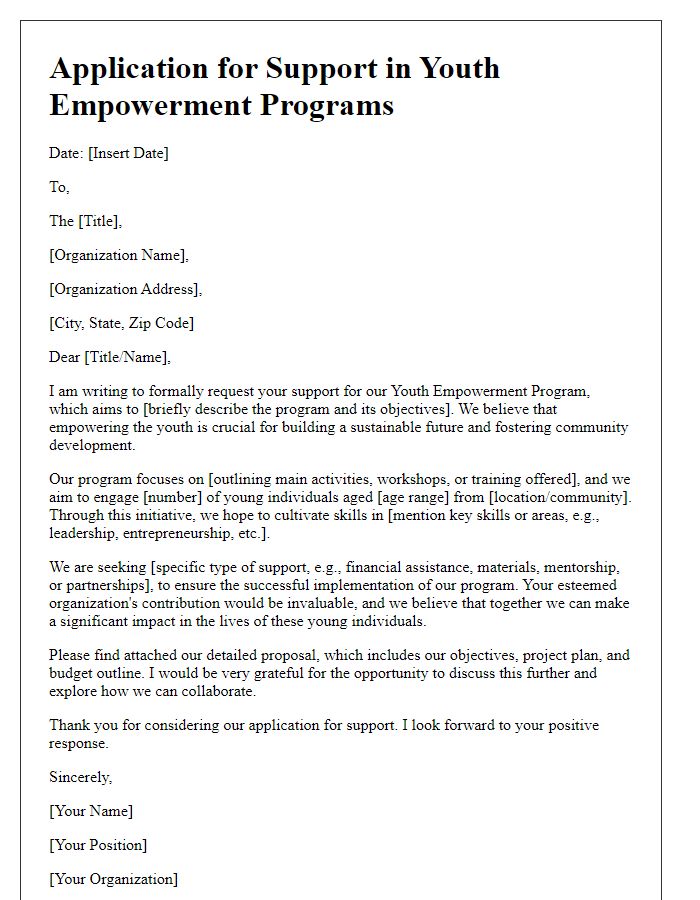
Letter template of suggestion for collaboration on health improvement projects.
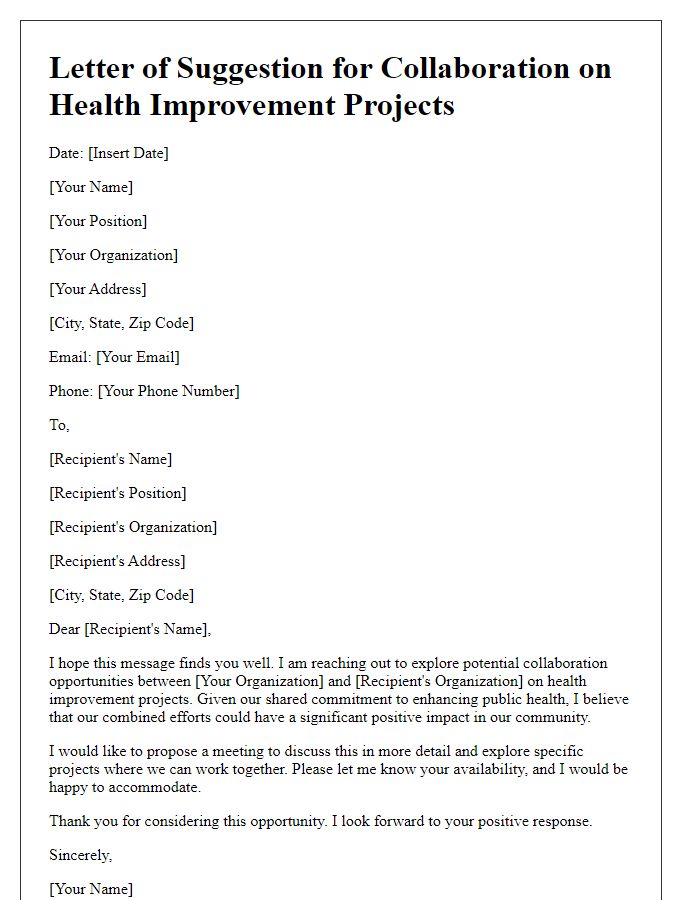
Letter template of solicitation for donations for education reform initiatives.
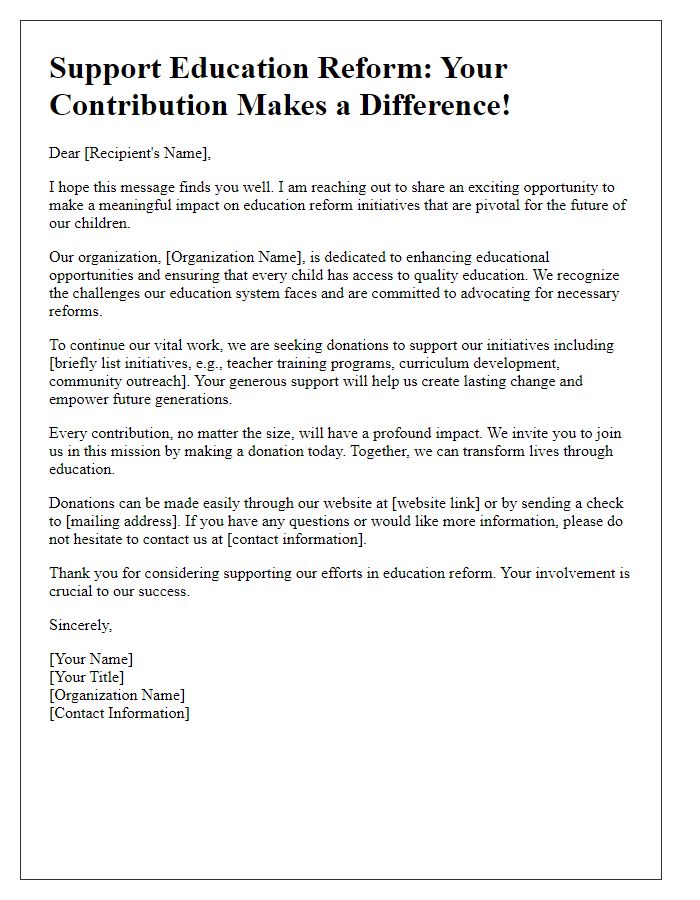
Letter template of notification for upcoming social innovation events seeking sponsors.
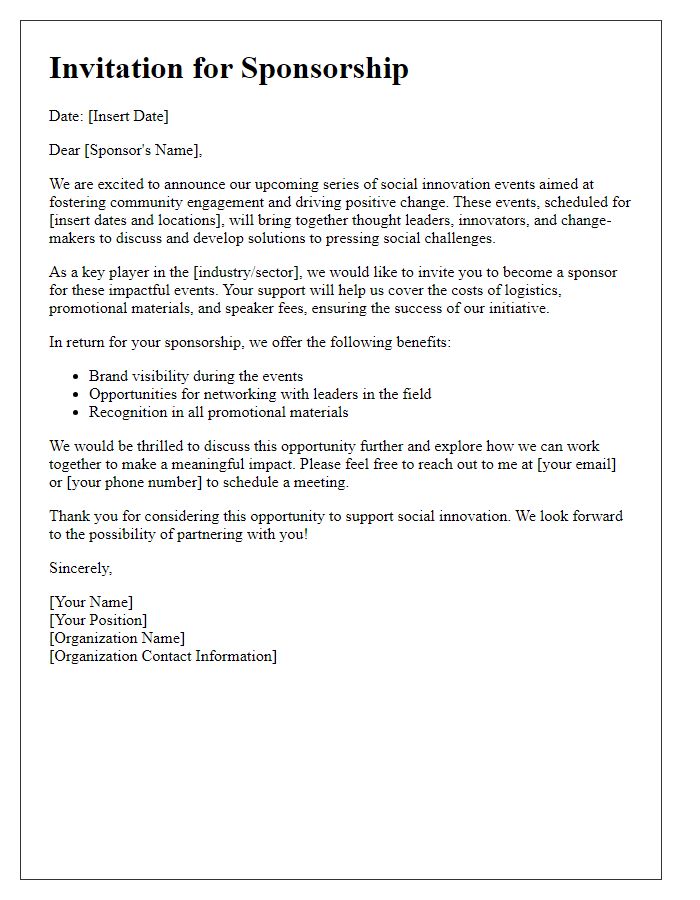

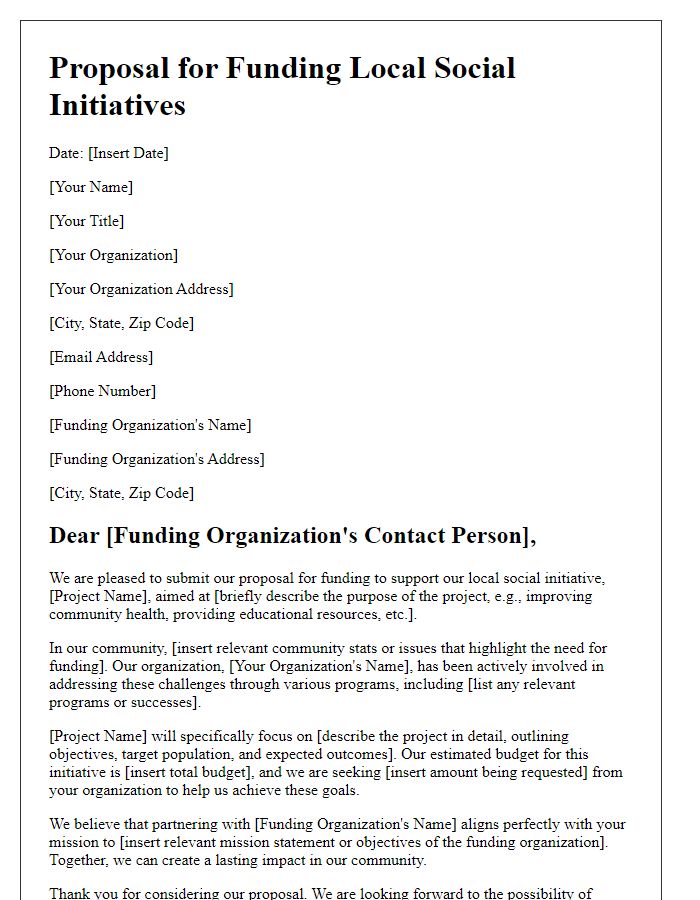
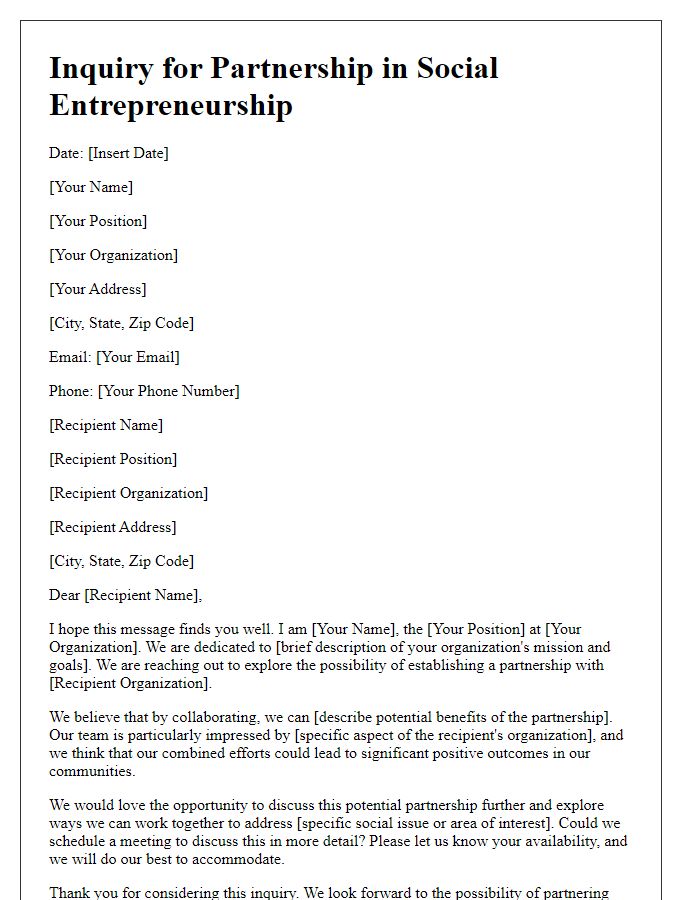
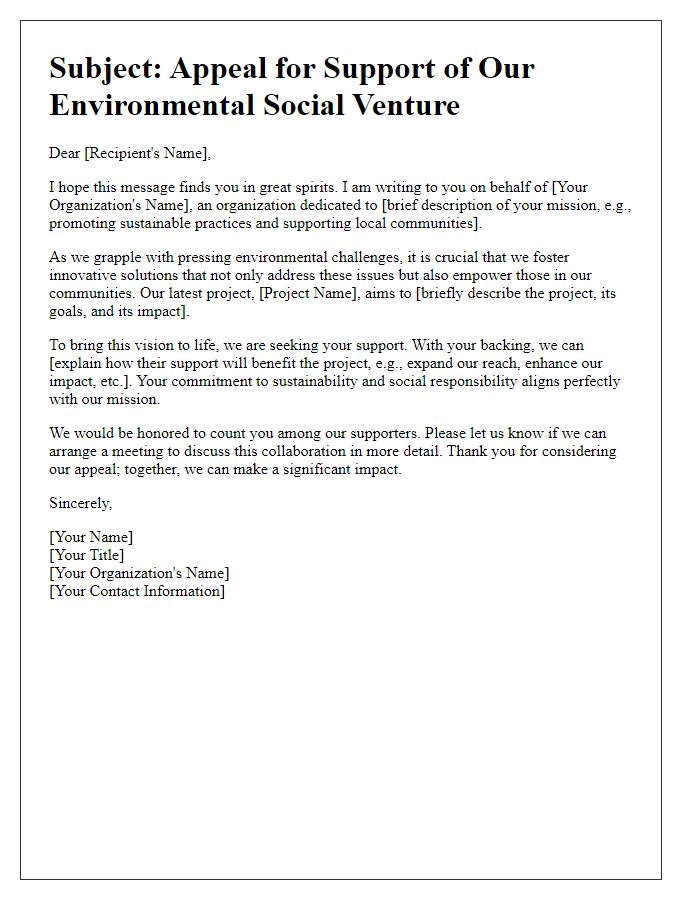
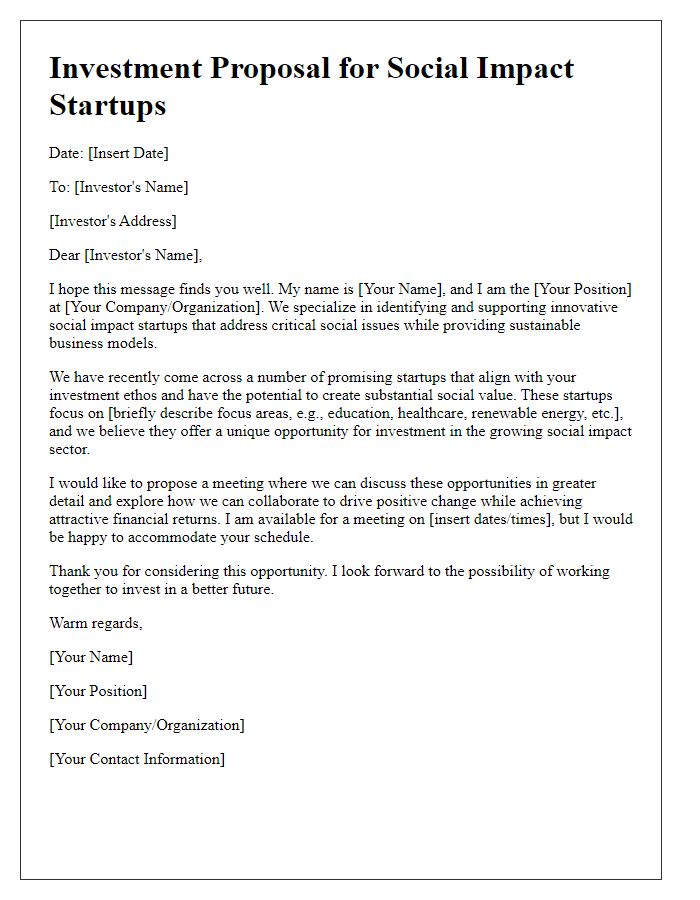
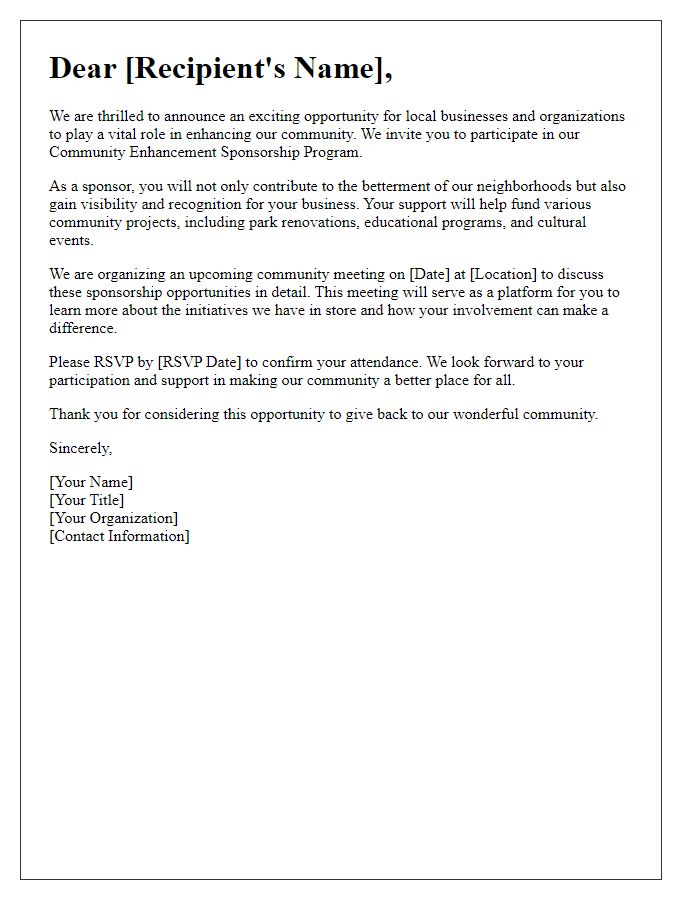


Comments